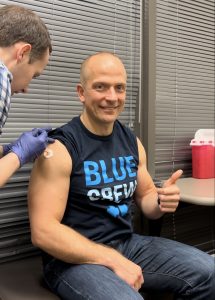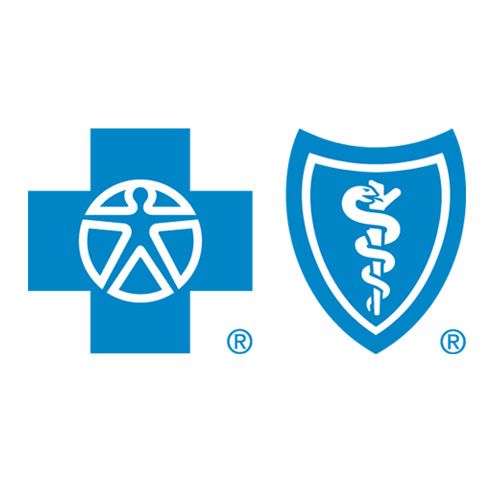CMO Dr. Mark Steffen: Why I got my flu shot and COVID-19 booster at the same time
October 8, 2024In Minnesota the leaves are turning, the temps are falling and the flu season is approaching. For me, that meant it was time to visit my local pharmacy, roll up my sleeve, and receive two shots – one for the flu vaccine and one for the 2024-2025 COVID-19 vaccine. Here’s why.
Convenience of a single visit
 Each year, there is speculation around when the flu season will hit—early or late? As much as we want to predict with 100% accuracy, no one has a crystal ball. One school of thought says if we get the shot early and the flu season hits late, our immunity may have waned a bit. Certainly there is some validity to that and getting the flu vaccine before September is generally not recommended.
Each year, there is speculation around when the flu season will hit—early or late? As much as we want to predict with 100% accuracy, no one has a crystal ball. One school of thought says if we get the shot early and the flu season hits late, our immunity may have waned a bit. Certainly there is some validity to that and getting the flu vaccine before September is generally not recommended.
For many people, including me, the risk of delaying immunizations too long is that we end up being too busy and completely forget about it altogether. Not getting the vaccine is guaranteed to provide no protection.
To safeguard my health and the health of others around me, I chose the convenience of getting it done at my earliest convenience in September alongside my updated COVID-19 vaccine. I do the same thing for my kids, and I recommend the same to my parents (who are in their seventies), and other family and friends.
Lowering the chance of infection
As a society, we may have forgotten about the risks of COVID-19 in our daily lives. Due to significant public exposure and literally millions of COVID-19 vaccinations administered over the past four years, we know there are increasing numbers of individuals with existing COVID antibodies. We also know that there has continued to be periodic surges of community transmission, and it is important to remember there is still significant morbidity and mortality associated with COVID-19.
This risk is especially higher in infants, older adults, and those who are immune suppressed or have other chronic conditions that are known to increase risk. That’s why I got this year’s COVID-19 vaccine and am ensuring my family does the same.
Reducing the symptoms
Vaccines are not a cure. Nor do they guarantee that you will not become infected. However, data has shown that vaccines are effective at protecting us from severe disease, hospitalization, and death. In addition, there is evidence that vaccination lowers your risk of long COVID.
For people who do get sick remember that there are antiviral treatments available that may be recommended for those at risk of severe disease.
Protecting loved ones and the community

Whether it’s the flu, COVID-19, or any other respiratory illness – I don’t want to be someone who carries a highly contagious virus that places others at risk. That’s why I get the vaccines that are available, and it’s also why I follow the CDC’s recommendations to prevent those illnesses from spreading.
If you don’t feel well, it’s important to stay home until your symptoms start to improve and you are fever free for 24 hours.
We are all in this together and the CDC recommends most people ages 6 months and older get a flu vaccine and an updated 2024-2025 COVID-19 vaccine. If you are eligible don’t forget to schedule your immunizations this season.


